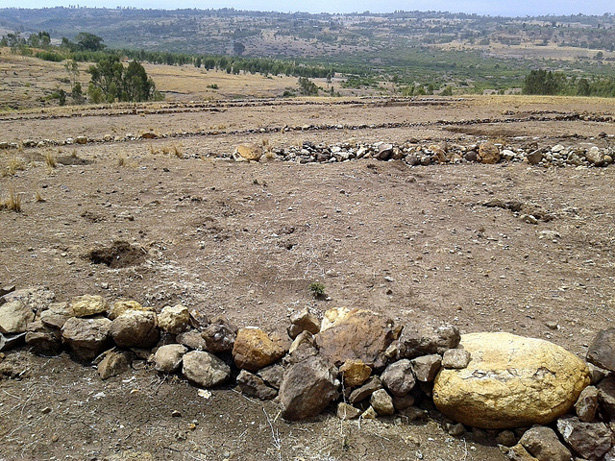-
Eugenie Maiga, Africa Up Close
Can Indigenous Soil and Water Conservation Techniques Help Solve Africa’s Food Crisis?
June 5, 2013 By Wilson Center Staff
The original version of this article, by Eugenie Maiga, appeared on the Wilson Center’s Africa Up Close blog.
With the 2011 and 2012 food crises in the Horn of Africa and the Sahel, calls for urgent action and sustainable solutions to food insecurity in Africa have intensified. While many factors, like rising commodity prices, have been contributing factors, land degradation stands out as a main catalyst. In the search for a solution, indigenous farming techniques may offer some quick wins.
The challenge of fixing the problem of degraded lands in famine-prone regions is a huge one. In many parts of Africa, land degradation has already reached crisis proportions, leading to famine, land erosion, erratic rainfall, recurrent drought (particularly in East and West Africa), food insecurity, and sometimes death of the most vulnerable individuals. In 2011 in the Horn of Africa, for example, an estimated 12 million people faced severe malnutrition in the region, while 90 percent of the livestock died. For a region whose populations engage primarily in farming and animal husbandry, this holds dire implications.
Given how devastating the food crisis continues to be, there is not a more timely moment than now to refocus ideas and resources on addressing land degradation. To this end, modern solutions exist, such as irrigation and re-fertilization, but governments and development partners need to deepen investment in these proven techniques and work with communities to make sure such schemes deliver sustainable results. The issue of the availability of sufficient financial resources to invest in these tactics, which are typically scarce for both farmers and governments, remains salient. As a result, it can take painfully long for such resources to reach the doorsteps of communities.
So what about solutions that already exist in vulnerable communities? The good news is there are time-tested indigenous techniques that can be implemented on already cultivated or eroded land in need of restoration for agricultural production. Here I want to focus on two such techniques: zaï and stone bunds. Although they are labor-intensive, indigenous techniques like these can be implemented as low-cost solutions to low yields and land degradation in Africa.
Continue reading on Africa Up Close.
Photo Credit: Stone bunds on degraded land in Ethiopia, courtesy of Trees for the Future.
Topics: Africa, agriculture, conservation, environment, food security, land, natural resources, water
 A Publication of the Stimson Center.
A Publication of the Stimson Center.



